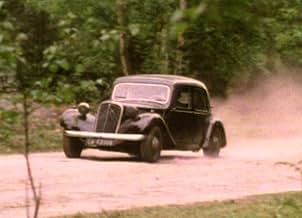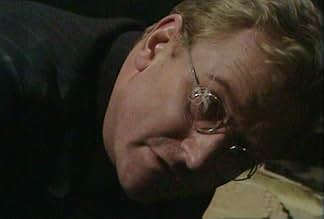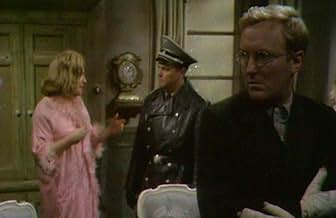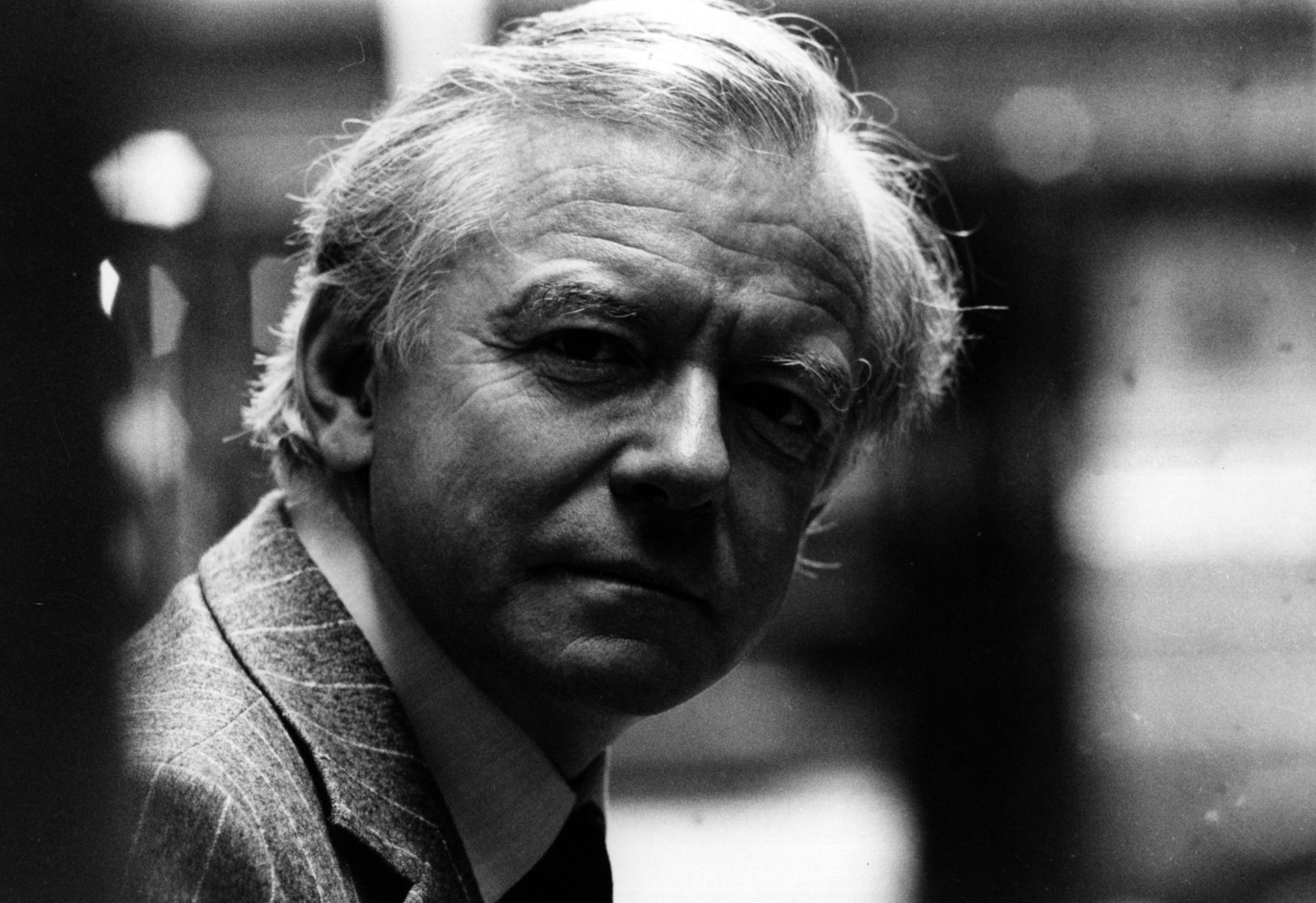In 1942, British pilot Jimmy Briggs crashes his aeroplane in occupied France and immediately finds himself on the run from the Nazis.In 1942, British pilot Jimmy Briggs crashes his aeroplane in occupied France and immediately finds himself on the run from the Nazis.In 1942, British pilot Jimmy Briggs crashes his aeroplane in occupied France and immediately finds himself on the run from the Nazis.
Browse episodes
Featured reviews
Prior to 'Manhunt', the majority of films about the French Resistance, certainly in Britain and America, were very simplistic boy's own adventure stuff about plucky men (and sometimes women), with little exploration of the issues relating to collaboration and resistance. 'Manhunt' changed all that.
Of course, it helped that it had literate scripts, fascinating characters, and superb performances. It was an instant T.V. 'hit'. But it was a superb history lesson. It showed the resistance movement as a collection of individuals with a variety of motives - Communists, Gaullists, evaders from labour service, and people with personal motives. They distrusted each other sometimes, and saw other groups as rivals. Similarly, the Germans were not monolithic. The S.S. and Gestapo hated the Abwere, and vice versa.
The most interesting character was Graz, the Abwhere intelligence officer, for he was on the fringe of the anti-Nazi resistance movement.
Consequently, you never really knew what happened from one episode to the next. That was what made it so exciting and watchable.
The series proved so popular that it was extended beyond the anticipated number of episodes.
In many ways 'Manhunt' prefigures themes in 'Army of Shadows' and 'Soldier of Orange'.
Of course, it helped that it had literate scripts, fascinating characters, and superb performances. It was an instant T.V. 'hit'. But it was a superb history lesson. It showed the resistance movement as a collection of individuals with a variety of motives - Communists, Gaullists, evaders from labour service, and people with personal motives. They distrusted each other sometimes, and saw other groups as rivals. Similarly, the Germans were not monolithic. The S.S. and Gestapo hated the Abwere, and vice versa.
The most interesting character was Graz, the Abwhere intelligence officer, for he was on the fringe of the anti-Nazi resistance movement.
Consequently, you never really knew what happened from one episode to the next. That was what made it so exciting and watchable.
The series proved so popular that it was extended beyond the anticipated number of episodes.
In many ways 'Manhunt' prefigures themes in 'Army of Shadows' and 'Soldier of Orange'.
TPTV brought us a great BBC wartime series in Secret Army,so I hoped that this would be just as good. Sadly I was very disappointed. It is unbelievably bad. Every aspect of this series is below par. The writing is truly abysmal. The characters are all stereotypes. Phillip Madoc as the AS officer is almost identical to his naval officer in Dad's Army .
Each week they seem to be running almost aimlessly across fields. Most of the episodes contain a lot of talk with a small amount of action at the end. The series seems to be underfunded as there are barely a handful of German soldiers in evidence at any given time.
Each week they seem to be running almost aimlessly across fields. Most of the episodes contain a lot of talk with a small amount of action at the end. The series seems to be underfunded as there are barely a handful of German soldiers in evidence at any given time.
Some reviewers have panned this series, but it is theatre, FGS, not a documentary. What I love about it is the dialogue - a long gone cultured English that is intelligible - whether the action is in French, German, or English it remains in English - and that suits me. The performance of Robert Hardy as the ambivalent Abweht sergeant Gratz is a tour de force. He is moving, funny, frightening and human. Poor Nina (the gorgeous Cyd Hayman) ! Men either want to sleep, torture, or kill her. And the sinister Obersturmbanführer played by Philip Madec (don't tell him Pike) is terrifying.
There are of course, to our contemporary sophisticated eyes sole ludicrous. Moments, but you have to expect that is dramas of that period - think of Olivier's performance as Othello that evokes laughter today with its West Indian mimicry. The dialogue written for Gratz never varies in its brilliant portrayal of his wit and cunning.
I recommend it heartily,-you do not need subtitles to clarify the sloppy diction of today's actors, or the risible portrayal of the upper classes by bit players from East Enders.
There are of course, to our contemporary sophisticated eyes sole ludicrous. Moments, but you have to expect that is dramas of that period - think of Olivier's performance as Othello that evokes laughter today with its West Indian mimicry. The dialogue written for Gratz never varies in its brilliant portrayal of his wit and cunning.
I recommend it heartily,-you do not need subtitles to clarify the sloppy diction of today's actors, or the risible portrayal of the upper classes by bit players from East Enders.
This is a great example of what can be done on a small budget.
A great cast, including a sleazy pre-Blakey Stephen Lewis are set adrift somewhere in France. Set work is minimal, with the three main protagonists usually running through what appears to be the same field.
In one episode, there is a nod to Greek tragedies, in that the action is taking place outside, with only the actors narrative telling the cast and viewers what is happening.
I remember parts of this series first time round and wanted to see how it panned out. Time fades the memories.
Some may be shocked mainly by Jimmy's misogynistic attitude and Nina's acceptance of what he says.
That noted, good to see a well written drama, with some great acting.
A great cast, including a sleazy pre-Blakey Stephen Lewis are set adrift somewhere in France. Set work is minimal, with the three main protagonists usually running through what appears to be the same field.
In one episode, there is a nod to Greek tragedies, in that the action is taking place outside, with only the actors narrative telling the cast and viewers what is happening.
I remember parts of this series first time round and wanted to see how it panned out. Time fades the memories.
Some may be shocked mainly by Jimmy's misogynistic attitude and Nina's acceptance of what he says.
That noted, good to see a well written drama, with some great acting.
An extraordinary series, in turn intriguing, gripping, shocking and sometimes downright mad.
It begins as a piece of superior thick ear, with an odd trio - repressed Victor, extrovert Jimmy, and traumatised Jew Nina - trapped in occupied France, trying to get back to Britain with the information in Nina's head. The series involved a series of writers, whose different strengths led to a great deal of variety among the episodes - a technique used by excellent dramas of the time including The Gold Robbers and The Guardians. One wonders whether the writers competed amongst themselves to outdo each other - most of the episodes included scenes with dialogue of great tension which could make the hairs on one's neck stand on end. Various experiments were tried - one episode in virtual silence, others being practically two-handed plays. There was a lot of violence, and a high death rate, but typically the gunfire only punctuated the complex interactions of the various people trapped in the wartime situation.
We had the leading trio - Peter Barkworth, of dual nationality, who tries to overcome his sensitivity and compassion with cold professionalism, Cyd Hayman, who begins as a beautiful victim and sex object but finds untrained and unmanageable powers of self- protection, resistance and revenge, and Alfred Lynch as the Brylcreem Boy who finds that his cavalier attitude to danger and discipline are not enough to get him through the nightmare - but also the duplicity of the Resistance, and the collaborators, and the fatal rivalry between the brutish SS, the supine French police and the Abwehr, schooled in more military virtues.
As the series becomes more profound and serious, three more characters are dropped into the mix - Lutzig, too subtle for his SS masters but still a thug, Adelaide, of ambiguous loyalties, and the extraordinary Gratz. There is no scene too small for Robert Hardy to steal, in an incredible performance. The three original protagonists are split up, and so in the second half you could never predict which of the six would appear in any given episode. In the extremity of their situation they become so obsessed with each other that passions emerge, love and abuse co-exist, and - as the codeword introduced later in the show has it, 'war is love'.
The show is not perfect. Some of the psychology stretches credibility, and one wonders what languages they all speak. But still, it's a stunning drama which builds up to a giant and profound climax.
The theme, built around the opening motif of Beethoven's Fifth, became instantly associated with the series at the time of broadcast. This was a particularly brilliant idea, as the series was broadcast only 26 years after the end of the war, and many viewers would have memories of the motif being used in allied broadcasts. Why that motif? Because the rhythm, ...-, signifies the letter V (for victory) in Morse Code.
It begins as a piece of superior thick ear, with an odd trio - repressed Victor, extrovert Jimmy, and traumatised Jew Nina - trapped in occupied France, trying to get back to Britain with the information in Nina's head. The series involved a series of writers, whose different strengths led to a great deal of variety among the episodes - a technique used by excellent dramas of the time including The Gold Robbers and The Guardians. One wonders whether the writers competed amongst themselves to outdo each other - most of the episodes included scenes with dialogue of great tension which could make the hairs on one's neck stand on end. Various experiments were tried - one episode in virtual silence, others being practically two-handed plays. There was a lot of violence, and a high death rate, but typically the gunfire only punctuated the complex interactions of the various people trapped in the wartime situation.
We had the leading trio - Peter Barkworth, of dual nationality, who tries to overcome his sensitivity and compassion with cold professionalism, Cyd Hayman, who begins as a beautiful victim and sex object but finds untrained and unmanageable powers of self- protection, resistance and revenge, and Alfred Lynch as the Brylcreem Boy who finds that his cavalier attitude to danger and discipline are not enough to get him through the nightmare - but also the duplicity of the Resistance, and the collaborators, and the fatal rivalry between the brutish SS, the supine French police and the Abwehr, schooled in more military virtues.
As the series becomes more profound and serious, three more characters are dropped into the mix - Lutzig, too subtle for his SS masters but still a thug, Adelaide, of ambiguous loyalties, and the extraordinary Gratz. There is no scene too small for Robert Hardy to steal, in an incredible performance. The three original protagonists are split up, and so in the second half you could never predict which of the six would appear in any given episode. In the extremity of their situation they become so obsessed with each other that passions emerge, love and abuse co-exist, and - as the codeword introduced later in the show has it, 'war is love'.
The show is not perfect. Some of the psychology stretches credibility, and one wonders what languages they all speak. But still, it's a stunning drama which builds up to a giant and profound climax.
The theme, built around the opening motif of Beethoven's Fifth, became instantly associated with the series at the time of broadcast. This was a particularly brilliant idea, as the series was broadcast only 26 years after the end of the war, and many viewers would have memories of the motif being used in allied broadcasts. Why that motif? Because the rhythm, ...-, signifies the letter V (for victory) in Morse Code.
Did you know
- TriviaThe series opens in September 1942, as Squadron Leader James Briggs' Spitfire crashes ten miles north of Bracieux in Occupied France. The series concludes six months later, according to dialogue in The Losers (1970).
- GoofsJimmy Briggs (Alfred Lynch) is shot down in his Spitfire and states he is a member of 44 Squadron. 44 Squadron was in fact a bomber squadron, flying first the Handley Page Hampden and then the Avro Lancaster.
- How many seasons does Manhunt have?Powered by Alexa
Details
- Release date
- Country of origin
- Language
- See more company credits at IMDbPro
- Runtime1 hour
- Color
- Aspect ratio
- 1.33 : 1
Contribute to this page
Suggest an edit or add missing content




































